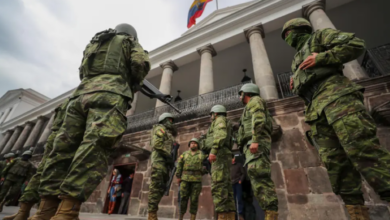Venezuela: It is time to end the Carnet de la Patria
Venezuelans receive subsidized food thanks to the document, but they are losing political rights

In January 2017, the government of Nicolás Maduro implemented a document called "Carnet de la Patria", which aims to have more control over the social programs sponsored by the State. Initially, one of its effects would be to find possible scammers that divert resources that would be destined to the most vulnerable sectors of the Venezuelan population.
Leer en español: Venezuela: Es hora de acabar con el Carnet de la Patria
More than a year and a half after its implementation, the card has been criticized and praised. LatinAmerican Post has reviewed these points to answer the question: is the Carnet de la Patria necessary?
How has this ID helped Venezuelans?
By having the Card, citizens of Venezuela can access food, hygiene items, and subsidized school scholarships. The resources are distributed through the so-called Local Committees for Supply and Production (CLAP, in Spanish) and the National System of Missions. Institutions of national deployment that are in charge of the basic needs of the Venezuelan creditors of the Carnet de la Patria.
Likewise, gasoline will be subject to subsidy, because after the launch of the so-called Economic Recovery Program, which requires to put the price of Venezuelan gasoline at the international price, the government assured that those with the Carnet will be able to access this benefit.
What have been its negative impacts?
On several occasions, members of the Venezuelan opposition, such as Henrique Capriles, described the measure as "blackmail". The card is seen as a form of Maduro's government to secure votes and the loyalty of the most impoverished sectors in Venezuela.
Basically, the government would be using food and supplies difficult to acquire in the context of the economic crisis in that country so that people are willing to perpetuate the regime in power.
Capriles himself points out that the card is also an excuse for the United Socialist Party of Venezuela (PSUV) to make a "census" that, due to the nature of its cost, would benefit the producers of the document. In the same way, due to the obligatory nature of the document, citizens who have it are affiliating in some way with the PSUV, which would hinder their entry to other political parties.
Also read: Attack against Maduro: Santos would be responsible according to the Venezuelan president
Similarly, the card has been criticized because if the government's intention is to help the most impoverished Venezuelans, they could do so through the citizenship card, which reinforces Capriles' thesis as well as the oppositions’.
Recently, it has been denounced by some productive sectors that the payment of the differential wage, which the State will assume, obliges the workers to take out the document in order to access this payment. Due to the increase of the minimum wage to a value 35 times higher than the current one, many companies would go bankrupt.
What to do with the Card?
The economic benefits for disadvantaged classes are overshadowed by the political implications brought by the implementation of the Carnet. Part of the project called "Socialism of the 21st Century" is based, in part, on the reduction of social and economic inequality. These subsidies are mitigating measures for this purpose, but they are draining the resources of the State. It is an untenable measure over time.
In political terms, the card is forcing different sectors of Venezuelan society to obey the designs of the Maduro regime, which seriously compromises the pretensions to make political opposition. It also generates a differentiation in the status of a citizen, since those who hold the card enjoy more benefits and rights than those who have only their ID. In other words, the government is encouraging the generation of second-class citizens based on their political affiliation.
LatinAmerican Post | Iván Parada Hernández
Translated from “Venezuela: Es hora de acabar con el Carnet de la Patria”





